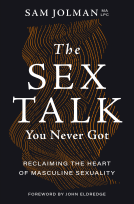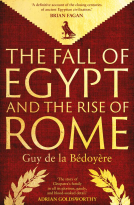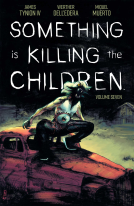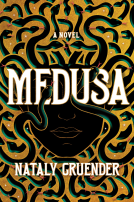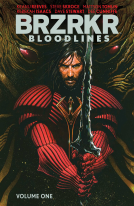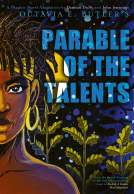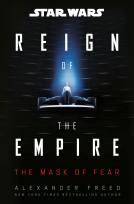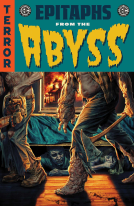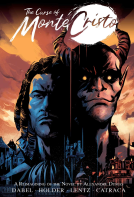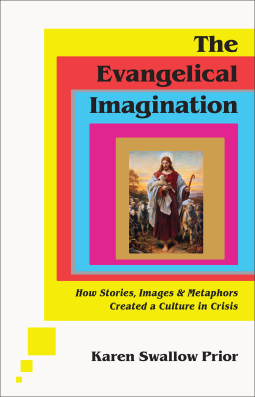
The Evangelical Imagination
How Stories, Images, and Metaphors Created a Culture in Crisis
by Karen Swallow Prior
This title was previously available on NetGalley and is now archived.
Send NetGalley books directly to your Kindle or Kindle app
1
To read on a Kindle or Kindle app, please add kindle@netgalley.com as an approved email address to receive files in your Amazon account. Click here for step-by-step instructions.
2
Also find your Kindle email address within your Amazon account, and enter it here.
Pub Date Aug 08 2023 | Archive Date Sep 15 2023
Baker Academic & Brazos Press | Brazos Press
Talking about this book? Use #TheEvangelicalImagination #NetGalley. More hashtag tips!
Description
Contemporary American evangelicalism is suffering from an identity crisis--and a lot of bad press.
In The Evangelical Imagination, acclaimed author Karen Swallow Prior analyzes the literature, art, and popular culture that has surrounded evangelicalism and unpacks some of the movement's most deeply held concepts, ideas, values, and practices.
She shows that understanding what the term "evangelical" means today means understanding not only evangelicalism's faith commitments but also the images, metaphors, assumptions, and stories that have cultivated evangelical culture.
Brought to life with color illustrations and paintings, this book explores ideas including
● conversion
● domesticity
● empire
● sentimentality
● and more
"Provides plenty of fodder for those wishing to explore what evangelicalism is and reimagine what it might become. It's an eye-opener."--Publishers Weekly
"Akin to enjoying a lively conversation over a cheering yet bracing cup of tea."--Christianity Today (5-star review)
"A breathtaking reminder of just how powerful the evangelical imagination has been and how much is lost when we forfeit it."--The Gospel Coalition
Advance Praise
“As an artist and follower of Jesus often falling into the gaps and fractures of the church and the world, this book is a refreshing, and eye-opening, guide to navigate beyond the borderlands. Sanctified imagination is critical in developing as the body of Christ, in being the harbingers of hope and creators of beauty, and Karen Swallow Prior is one of the most trusted voices to help us find our thriving.”—Makoto Fujimura, artist and author of Art and Faith: A Theology of Making
“Karen Swallow Prior wants evangelicals to think carefully about how they think, particularly to understand how much we as evangelicals take for granted in the metaphors we use, the assumptions we make, and the conventions we take for granted. The book brings together the history of evangelicalism, Prior’s expertise in Victorian literature, and sensitive analysis of the present moment into an indictment of the ‘evangelical imagination,’ but an indictment with hope because of evangelical engagement with the gospel.”—Mark Noll, author of A History of Christianity in the United States and Canada
“If you think you’ve read everything on evangelical culture, think twice: The Evangelical Imagination will blow your mind! As well as encourage your heart to desire what is beautiful again. Prior’s writing is sharp, substantive, and engaging. You will be quoting her to friends and sharing her insights with your family as you struggle to remember the false paradigms you used to live under. With her deep knowledge of the past three hundred years of history, literature, and philosophy, Prior unmasks our assumptions about evangelical culture and shows us both the good and the bad of our inherited social imaginary. You need this book to remind you why you love the evangelical church and to inspire you to be an active culture maker for the kingdom.”—Jessica Hooten Wilson, author of The Scandal of Holiness and Reading for the Love of God
“Christians know that we should love the Lord with all our heart, soul, mind, and strength. But what about loving him with all our imagination? In this important new book Karen Swallow Prior argues that the imagination is a vital and neglected area of discipleship for today’s church. She attacks the cultural cholesterol of ideas like improvement and sentimentality that sclerotize the evangelical imagination, and she invites us to enjoy a more healthy and biblical imaginative life. This is a crucial book for anyone who wants to bring every faculty—including the imagination—under the lordship of Christ.”—Christopher Watkin, associate professor of European languages, Monash University; author of Biblical Critical Theory
“If ‘examination is an act of love,’ as Karen Swallow Prior rightly asserts, then this important book is a loving examination of many of the received ideas, metaphors, and stories that evangelicals have inherited and that inform their worldview. Prior’s examination of this history, this underlying imagination, in light of Scripture and the deepest truths of faith, offers contemporary Christians a chance for self-awareness, renewal, and hope. The insights offered in this book are not always comfortable, but they are just that kind of truth which the gospel promises ‘will make us free,’ free to move through culture to Christ, rather than letting our culture obscure or diminish him.”—Malcolm Guite, author of Lifting the Veil: Imagination and the Kingdom of God
“This eye-opening book calls on evangelicals to examine their fundamental assumptions and to shed their faith of unwanted elements more cultural and political than religious. It will also assist non-Christians, like me, whose image of the evangelical faith has been clouded by those same unexamined assumptions and unwelcome elements.”—Henry Reichman, professor emeritus of history, California State University, East Bay; author, Understanding Academic Freedom; former vice president, American Association of University Professors
Available Editions
| EDITION | Other Format |
| ISBN | 9781587435751 |
| PRICE | $26.99 (USD) |
| PAGES | 304 |
Available on NetGalley
Featured Reviews
This was a book that delved into what imagination is and specifically how the Evangelical Imagination has been formed by stories passed down through decades, metaphors that have shifted over the years, and various images.
I really enjoyed thinking philosophically about imagination and how our imagination is impacted by what we consume in our day to day life.
"Imagination is central to the way we think, the way we go through our days, and even the way we believe and enact those beliefs."
"Our very desires are ordered - if not produced - by the power of our imaginations and the social imaginary that is our context."
Dr. Prior does not shy away from addressing the numerous failings of the Evangelical movement, and encourages us to consider what ideas need to be challenged and how to better live like Jesus.
"Sometimes the most fruitful study is simply listening to the experiences of others, enlaeginggw our perspective, not replacing subjective experience for objective truth, but rather seeking to understand how Jesus, the Logos at the center of all creation, accommodates all human experience."
One element Dr. Prior highlights is how a lot of our views on what is biblical is actually from the Victorian Era. And she challenges the view that "personal salvation alone will not solve all problems personal and social. 'Get people saved' one hears constantly in response to laments about social injustice and moral problems. If this were all that were necessary to eradicate injustice there would be no (or at least far fewer) Christians who bought and sold slaves, abused their wives, aborted their unborn children, or got drunk on power."
Ovefall, this book was a fascinating foray into the history of the Evangelical movement and how it has impacted our imagination. I thoroughly enjoyed thinking about imagination more and how Dr. Prior defined imagination.
"What is imagination but an opening of the eyes of our hearts?"
"Imagination is an expression of the human desire for meaning beyond the literal surface of our lives."
The Evangelical Imagination is a fascinating, well-researched look at how thinking in church communities have been shaped over time. I appreciate how the author has taken time to consider cultural change and influences. An intriguing read!
This book informative, interesting, thought-provoking, and eye-opening. I feel like this book should be required reading for all English teachers at a Christian school. Prior gives a history of the evangelicals and provides literary references and examples throughout to enrich, explain, or emphasize the evangelical movement represented in the book. I have a feeling this will be a book that I reread regularly.
I received an ARC from NetGalley.
It's frankly difficult these days to exist within church spaces for longer than five minutes without hearing the name "Charles Taylor" or the term "social imaginary." If neither of those things mean anything to you, I'd probably just stop reading this review right now!
I've heard many sermons and lectures referencing Taylor and his writings about the "social imaginary," which is sort of the mental furniture (values, beliefs, practices, patterns, etc.) that makes sense of our shared life in a society. For example, at one point she pictures the stereotype of a sparsely decorated Evangelical sanctuary composed of straight pews all facing toward a pulpit, and how that literal furniture reinforces the Evangelical insistence upon a life oriented around the Bible and its proclamation without much ornamentation. I'm embarrassed to admit, though, that until I read Karen Swallow Prior's new book, The Evangelical Imagination, I thought I had a pretty good understanding of social imaginaries, but I had never really bothered to ask myself the question, "What is that social imaginary for Evangelicals? What is the content of that social imaginary? What is that mental furniture?"
Prior names ten things that she believes to be integral to the Evangelical social imaginary:
Awakening
Conversion
Testimony
Improvement
Sentimentality
Materiality
Domesticity
Empire
Reformation
Rapture
For each, she explains what she means by the term, why she thinks its a necessary component to understanding the Evangelical movement, and where that component came from. She readily acknowledges that none of these are necessarily unique to Evangelicalism, and she takes time to examine how these things take up a life of their own in the broader society surrounding Evangelicalism.
Some of these chapters are pretty much exactly what you might expect (guess what the "Rapture" chapter is about!) while others struck me with unexpectedly insightful connections. Probably my favorite chapter in the whole book was about sentimentality. Prior argues that sentimentalism could be defined as "emotion for the sake of emotion itself," a sort of emotion that is "self-aware and self-satisfied." She's not so much deriding emotion (or even sentimentality altogether!) as much as trying to understand why it finds such purchase in Evangelical culture. Why is it that the paintings of Thomas Kinkade mean so much to so many Evangelicals? Why is it that Evangelicals can "feel so close to God" when a favored song is played on Sunday, regardless of whether that song even says anything meaningful about or to God?
Prior drew out insights about sentimentalism and Evangelicalism that I had never considered before, though, such as this analysis of Evangelicals' fixation upon manhood and womanhood:
Some aspects of both masculinity and femininity are connected to biological sex, of course, while other aspects are rooted in historical and cultural context. (When one advocates for masculinity, is it the masculinity of King James I in his velvet cloak and crinkled ruff, or is it that of Chad, the cartoon figure of the alpha male popular in manosphere memes? Does the hardy peasant woman sowing the fields to help feed her large family in nineteenth-century Russia meet the criteria of femininity set by today’s evangelical social media influencers?) It’s helpful to consider how some aspects of cultural expectations around masculinity and femininity originate in feelings that have grown up around our contextually based perceptions of what constitutes “masculinity” and “femininity.” Often, exaggerated expressions of masculinity and femininity (like those found in cosplaying militia groups or plastic-surgery-enhanced housewives of certain counties) are at base just a form of sentimentalism: indulgence in the feelings aroused by our own personal and cultural associations more than reality. (emphasis mine)
I don't think I would have ever drawn a connection between the obsessiveness of the Biblical Manhood crowd and sentimentalism, but I must admit that it makes a certain kind of sense to me.
Prior also reflected on other aspects of Evangelicalism that have perplexed me, such as why there tends to be such a revulsion and rejection from Evangelicals toward the idea that evils could be embedded into society in systemic ways, or why it seems like it's harder for younger Evangelicals to hold to the faith than for Gen Xers and older. To be clear, I don't think that Prior's list of 10 components of the Evangelical social imaginary is any way exhaustive or definitive, but I found her analysis to be both profound and refreshingly grounded both in history and in the literature that has shaped the movement.
Much of her book is what I would describe as "interesting, intriguing, and intellectually stimulating," but there was one snippet that cut past all of that and has lived rent-free in my head since I read it:
The question in the current evangelical social imaginary isn’t so much about whether Jesus is real as it is about whether the person telling the story is real. It’s not a bad question. I don’t know about you, but I have no doubts about how real Jesus is. Yet, I have increasing questions about the stories of some of those who claim to follow him.
That's basically exactly how I have felt for a long time, and I suspect that many feel likewise. What is it about Evangelicalism that produces a petri dish where abuse, conspiracy theories, groupthink, anti-intellectualism, and celebrity worship thrive? It does my soul good to read someone like Prior who is earnest, sincere, thoughtful, and compassionate. If you've lived long within Evangelicalism, I'd recommend you read this book.
DISCLAIMER: I received a copy of this book from the publisher for the purpose of a fair, unbiased review.
For as long as I have been a Christian I have maintained a fundamental discomfort, a “dis-ease,” with a lot of the artistic production of the Evangelical subculture.
I do not self-identify as an Evangelical, and until recently, if even then, most Evangelicals would not want to claim me, either. Nevertheless, I find myself often in an “Evangelical-adjacent” space: a lot of the books, blogs, podcasts, music, movies, and for that matter the agendas and emphases in churches, let alone the “culture wars,” which prove nearly impossible to ignore comes out of the Evangelical subculture. For many people in the “Bible Belt” and in self-isolating communities around the country and the world, the Evangelical subculture seems to be their world and culture.
The reason I have maintained a level of discomfort with the productions from Evangelical subculture involve how they often are middle-rate, warmed over attempts to baptize modern secular culture, and often whenever originality is attempted, it tends to come off as a bit hokey and overly sentimental. In short, it has always felt to me as a failure of imagination.
Karen Swallow Prior has been immersed in Evangelical culture all of her life; few if any would be more qualified to explore the Evangelical imaginary as she does in The Evangelical Imagination: How Stories, Images & Metaphors Created a Culture in Crisis. (The picture above links to Amazon; publication date is the 08th of August; I received a galley through an early reading and review program).
Prior thus investigates the history of Evangelicalism through Charles Taylor’s lens of the “social imaginary”: the ways in which people in a group think and speak of things. She shows well how the Victorian era was the apogee of Evangelical success, and how much of what many associate with a particularly “Christian” worldview really just reflects the cultural mores of the Victorians. She explores how Evangelicals have considered and imagined life, light, awakening, conversion, testimony, moral improvement, the nature and power of sentimentality, grappling with the material world, the domestic sphere, empire, colonialism, and expansion, the reformation impulse, and finally (appropriately) apocalypticism and the “rapture.”
This is absolutely an English teacher’s foray through Evangelical history and heritage, and perhaps I’m biased as the son and husband of former English teachers, but Evangelical subculture really needs to submit itself to a thorough analysis of its historical imaginary. Prior connects most of the malaise in modern Evangelicalism to various aspects of this imaginary: the impetus to empire, colonization, and domination; the pretense of not being worldly yet constantly adapting various cultural forms and objects; the expectation of cultural dominance.
The book itself is not all about social commentary; Prior is a good Evangelical and tries to get Evangelicals to appreciate many aspects of their social imaginary as much as she has to point out the challenges which attend because of it.
For those attuned to the Evangelical subculture, or wanting to understand why the Evangelical subculture is the way it is, Prior’s work is highly recommended.
Thanks to Brazos Press for the eARC.
This was an interesting look into how the evangelical movement came about and how some of the ideas here are due more to culture than the Bible. It was an extremely deep look into how culture created this evangelical movement. History has a big influence on how the church has been shaped over time.
I do feel like some of this went over my head, and it's a book that would benefit from reading together and slowly to dig into the different concepts.
This book is an interesting examination of the social imaginary of modern-day evangelicalism and where it originated. To put it more simply, as Prior explained in a recent online gathering, the book seeks to examine what is cultural and what comes from the Bible, or even more succinctly, is it Biblical or is it Victorian? A specialist in Victorian literature, Prior examines history, literature, philosophy, and more to present her findings. Tends toward the academic, but well worth the effort for followers of Jesus interested in the present cultural moment.
 April N, Reviewer
April N, Reviewer
KSP dive into the history of evangelical art and evangelical culture was fascinating. She pointed out rightly where culture has been confused with Christian conviction and challenges the reader to look more closely at these issues. Excellent book!
 Adam S, Reviewer
Adam S, Reviewer
Summary: An exploration of how images and metaphors influence Evangelical thought (or don't.)
The Evangelical Imagination is the fourth of Karen Swallow Prior's books I have read over the past 11 years, the sixth if you include the two classics in which she wrote the introduction. I have been in a private Facebook group and "friends" on social media for most of that time. I looked back, and basically, this is what I said to introduce the last books of hers that I read.
Part of what I appreciate about Karen's writing is that her writing is personal. She is not just writing abstract "Christian Living" books, theology, or literary criticism; she is a character in the story she shares as she is writing theology, literary criticism, and moral formation. In large part, her work explores virtue, and she uses her work as a literature professor to give tools to that exploration.
I could write a thousand words discussing Prior's past decade and the struggles she has been through, from very personal harassment by leaders within her denomination to leaving two jobs as a professor to literally being hit by a bus. (I understand everyone must include that line in a review of her work or an introduction to her in an interview.) I hope she will write a memoir sometime in the next 10 to 15 years, and I want people to read about The Evangelical Imagination, not my outsider's perspective of her life.
Mark Noll's Scandal of the Evangelical Mind will be 30 years old next year, and that is the book I think many will bring up as they discuss the Evangelical Imagination. Noll raised the question about whether there really was an Evangelical Mind and speculated about what it would take for proper attention to be paid to the life of the mind for the Evangelical. It was a book that almost everyone that wants to grapple with evangelicalism needs to have read. It is an important book, but James KA Smith's work has indirectly questioned Noll's thesis. It is not so much that Smith disagrees with Noll's assessment but that Smith is raising questions about what we should do because we are not simply "brains on a stick" but individuals with a more complicated relationship to our minds.
Prior is extending Smith's work and using Charles Taylor's idea of the Social Imaginary to explore how a stunted imagination impacts our ability to address what it means to think and see the world around us. We all know Abraham Maslow's quote, "If the only tool you have is a hammer, you tend to see every problem as a nail.” This rough idea of the Christian Imagination was explored more than 20 years ago in Emerson and Smith's Divided by Faith. Emerson and Smith suggested that the reason Evangelicals cannot move past racial division is that their "toolkit" did not allow them to see the problem clearly but only through the lens of 1) freewill individualism, 2) relationalism, and 3) anti-structuralism. Smith and Emerson attempted to point out that the social imaginary of White Evangelicals impacted their ability to deal with race. Karen Swallow Prior is pointing out the social imaginary of Evangelicals more broadly and directly drawing parallels (for good and bad) to the Victorian age, where so much of the social imaginary of Evangelicals was developed. Most modern Evangelical do not know about those parallels and need someone to point them out.
As I was reading The Christian Imagination, I also listened to the audiobook of Mark Noll's recent history of the public use of the Bible, America's Book. In America's Book, Noll describes well how our imagination limits how we see the world with the example of slavery and the Bible.
In a word, what the Tappans, Grimké Weld, Cheever, Pennington, Douglass, and many others took from the Scriptures should have made proslavery advocates pause, since it came from the same divine authority they revered and interpreted with the same hermeneutical conventions they followed.
Proslavery, however, depicted all Bible-based antislavery as either dangerously liberal or outright heretical. Abolitionists like Albert Barnes and Daniel Goodwin insisted that they too honored the Scriptures. But when they drew on intuited truths from the moral sense to shape biblical interpretation, they seemed to their opponents to be doing self-consciously only what all abolitionists did un-wittingly-that is, abandoning the secure Word of God for heretical flights of egotistical presumption. (p 428, italics mine)
I highlight that quote because while pro-slavery Christians said they were honoring their understanding of the Bible, their social imaginary required that they see abolitionists' biblical arguments as either heresy or egotistical presumption. Noll goes on in the next chapter to explore why pro-slavery arguments were considered more biblical than abolition arguments in the United States but rarely in other places at the same time. Traditionally this has been presented as predominately about American plain-sense biblicism. But Noll disagrees with the characterization. Instead, he points to social conditions which made the listeners of that era primed to ignore the biblical case for abolition even when it was more biblically robust and more diversely rooted throughout the Bible than the case for slavery. Noll never uses the term social imaginary, but reading these two books together allowed me to see Prior's point about modern Evangelicals in Noll's history of American Christians.
Karen Swallow Prior opens the Evangelical Imagination by exploring the concept of the social imaginary and how we understand imagination more broadly. The metaphor, a type of imaginative reasoning, allows us to place abstract ideas in concrete examples. Literature, especially poetry and novels, is full of metaphors exploring how the world works. But if we do not understand the metaphor or our social imaginary primes us to misunderstand the metaphor, then that will impact how we see the world around us.
Using Emerson and Smith's work as an example, they suggest that most White Evangelicals tend to think in anti-structural terms and therefore have a hard time "seeing" the structural reasons for racial disparity as part of the valid reality of the world. In other words, when there is a racial incident, White Evangelicals tend to be primed to see that as an individual event, however tragic or regrettable, but not part of a broader pattern of events because the social imaginary of White Evangelicals is anti-structuralist.
After the introduction, Prior names the social imaginary of Evangelicals and explores the roots (often back to the Victorian age, her literary specialty, and the point when the novel was being established as a literary concept.) Some of these concepts that are named are the importance of conversation, sentimentality, the value of domesticity, and the priority of improvement (both self and society). Prior explores these concepts' positive and negative uses to our current faith.
Prior sees more value in the historical connection to Evangelicalism than I do. She has a chapter in Still Evangelical where she argues that the history of Evangelical justice work in the Victorian age is part of why we should work to maintain the connection to the term Evangelical. I tend to think that the Neo-Evangelical movement that is most commonly associated with Billy Graham has a historical connection to the Evangelicals of the 17th to 19th centuries, but that it really is a different movement that uses those connections to the earlier movement for credibility but does not share as much theological and cultural connections as is commonly believed.
In some ways, the argument of Evangelical Imagination makes my point moot. It doesn't matter much if the connection is overblown if many Evangelicals are just unaware of the ways that they are and are not influenced by that history. My disagreement is secondary to the importance of naming the social imaginary of current Evangelicals exists. So many evangelicals assume that their view of the world is what Christians have always understood throughout history. The final chapter on the rapture most clearly points this out. Many Evangelicals assume that the dispensational-influenced pre-millennialism is the dominant historical understanding of Christianity instead of a relatively recent innovation. (Darwinian Evolution is older than what we commonly understand as rapture theology.)
I commend The Evangelical Imagination compared to her previous books. Prior is a specialist in early British novels, and because she often references those in her previous books, I think she has over-relied on white commenters to those novels. The breadth of citations is much wider here than in her previous books, which helps more fully explore the concepts. Part of what she advocates in The Evangelical Imagination is to use other streams of Christianity to inform our understanding of both Evangelicalism, our current moment, and Christianity more broadly. And she illustrates her point by doing what she advocates. She cites Henri Nouwen's discussion of the two methods of seeking transcendence, the search for mystical experience and social revolution, which brings about radical change that will make you part of a transcendent movement. Nouwen is familiar to many Evangelicals, but his Catholic background gives him additional tools to self-evaluate the social imaginary of Evangelicalism. Similarly, Willie James Jennings' book The Christian Imagination influences the book through a conversation with the Black church.
One of Prior's strengths is self-critique, not just of herself as an individual, although that is true, but also of the movement she so closely identifies with, Evangelicalism. Prior also is a beautiful writer. The form she uses here is a common literary form, but the commonness of the forms works well with her writing quality in a way that only sometimes works with less skillful writers.
I am more progressive and less attached to the term Evangelical than Karen Swallow Prior is. But I will keep reading her because she brings quality and intellectual heft to the table that many Christian authors do not bring. I will continue to push back against some of her thinking because she has a bias to appreciate the good of Evangelical history more than the harm. (But she does not minimize the harm, and part of this book and her recent history is grappling even more with the harm publicly.) I continue to be amused at her dislike of fantasy (which she discusses in her rapture chapters). I am constantly reminded when she talks about her dislike of fantasy about how our particular tastes and intellectual orientation matter to how we perceive the world around us.
I also referenced The Evangelical Imagination in this post at Current.
I was provided a PDF advance copy of the Evangelical Imagination for review, but I finished up the last two chapters on the copy I preordered months ago.
Upon discovering THE EVANGELICAL IMAGINATION: How Stories, Images & Metaphors Created a Culture in Crisis by Karen Swallow Prior, I expected information, but it turned into a thought-provoking journey that reshaped my perception of evangelicalism. Prior's exploration of how stories, images, and metaphors have shaped evangelicalism prompted intense self-reflection, urging me to question long-held assumptions influenced by cultural forces. This book encourages embracing discomfort for growth, offering an eye-opening experience with enduring resonance.
If you're seeking a transformative look at evangelical culture, THE EVANGELICAL IMAGINATION is invaluable. Karen Swallow Prior's eloquent prose provides an opportunity to examine beliefs. I wholeheartedly recommend this book to those prepared to challenge assumptions and embark on a quest to live like Christ. I can't wait to read it again!
I voluntarily reviewed a complimentary copy of this book. All opinions are my own.
 Persis L, Reviewer
Persis L, Reviewer
I never paid much attention to air quality until this summer. It seemed hazier than usual one morning when I left for work, but I assumed it was typical humidity. But later in the day, I received a text from my daughter telling me to be careful when I went outside. The air quality was bad, unhealthily bad from wildfire smoke from Canada moving down the East coast. Since I didn't want what was clouding the air in my lungs, I took precautions by masking up.
I never considered what was in the air, where it came from, or what could pollute it on its way to me. I assumed it was safe until I was warned by someone who cared. So by way of metaphor, "The Evangelical Imagination" asks us to consider the cultural "air" we breathe as Evangelical Christians. What's in it? Where did it come from? And what could possibly harm us if we are left unaware?
This "imagination" is not a kid's make-believe nor the stuff of fantasy novels. The "social imaginary," coined by philosopher Charles Taylor, consists of all the influences that tell us what it means to be a person and how one is to be in a given culture. It affects and may even govern every aspect of our lives. These influences can be explicitly taught as mental concepts. But more often, they are implicitly caught by the culture's inhabitants through language we use, stories we read, and iconic images we see.
This book examines crucial components of the Evangelical imaginary. Drawing from history, literature, art, and current events, author Karen Swallow Prior discusses many themes which include Conversion, Testimony, Domesticity, Empire, Reformation, and Rapture. I'm leaving some out because I want you to read the book and find out for yourself!
Most of these themes are not all bad in themselves, but they can cross a line and wind up being contrary to what Scripture calls us to. As Christians, we can naively think that only the Bible informs us, but until we dig a little deeper into why we believe, feel, and act as we do, we won't know. It may not be purely biblical but a mixture of many influences that hover in the "air" unbeknownst to us. That's why this book is important.
I learned so much in reading "The Evangelical Imagination." One major takeaway was that the Evangelical movement has a specific historical and geographical context beginning in 18th century England. As its children, we inherited its ethos, but we inhabit contexts of our own. We aren't timeless like God. We are limited by bodies that can't escape the time and place we live. We may share much with other saints past and present, but our take on the world and Christianity isn't the only one. Knowing this helps us to be aware of the potential pitfalls of thinking our experiences are normative for the universal church let alone the rest of the mankind. Knowing this will help keep us humble.
In addition, there are aspects of Evangelicalism that I can't unsee after reading this book. Specifically, "Empire." As a nation, we rebelled against one empire only to form another, and "empires expand by dominating - rather than loving - their neighbors." The church is not exempt. Words of empire show up frequently in our metaphors. We have "crusades." We "fight" culture "wars." The bigger, flashier, and lucrative the better. And a sign that we are "winning" is proximity to political power. But is this triumphalism like Christ? Are ministry leaders servants of all or empire builders? This particular chapter is very direct, no pulling punches. But it needs to be said. After all, how can American Evangelicalism change for the better without honest evaluation?
This book has also been a springboard for more questions and exploration, which in my opinion is a mark of the best kind of book. During my reading, I would share excerpts with my daughter and ask her, "Doesn't this relate to ....? Doesn't it remind you of ...?" There are so many thoughts swirling in my head and dots that want connecting.
Finally, I greatly appreciate the author's faith that Jesus is still building his church despite its faults and failings. Her critiques are fair and firm but not without hope because our hope isn't in ourselves but in Jesus Christ.
I highly recommend "The Evangelical Imagination." It's definitely going on my "best of 2023" list.
(I received an advance reader copy from the publisher. This review is cross posted from my blog.)
In The Discarded Image, C.S. Lewis talks about how we often aren’t able to see the things in our own time that are shaping our outlook on the world, on the past, or even on ourselves. The Evangelical Imagination is a book that challenges evangelical Christians today to do just that—identify and consider the ideas and images shaping our views that we may never have realized.
Dr. Prior gives examples of many aspects of evangelical history, culture, and life and looks at the cultural things that shaped them. Some of the examples were difficult to think about—it is hard to examine things you didn’t even know were shaping your mindset and imagination. But it is important in order to understand why you believe the things you believe.
There were some examples where I felt I still had some questions about the connection to the evangelical movement today. But I appreciated Dr. Prior explaining some of what personally motivated this book—seeing so many students question their faith and walk away, especially over religious culture and not necessarily what is in the Bible. The book encouraged me to continue to examine the ideas I encounter and grow in my faith.
 Reviewer 1155610
Reviewer 1155610
Throughout this book Karen Swallow Prior shows through a variety of ways that many of the things that evangelicals hold to, and believe, are not actually biblical, but come from the culture where evangelicalism was formed, namely Victorian culture.
As an evangelical, I have been examining my beliefs and church culture and trying to see where it diverges from the bible, so this book, and the history it provided was very interesting as it helped me to further examine things that I have just taken for granted when it comes to my faith. I appreciate that Prior is not saying to throw everything out, but to critically review our beliefs and practices and keep what is biblical and let go of what is cultural. I hope and pray that more and more churches and evangelicals will do this in the near future.
I received this ARC from the publisher and NetGalley, all opinions are my own.
 Ashley H, Reviewer
Ashley H, Reviewer
This is absolutely my favorite book by Karen Swallow Prior. It is intellectually engaging and gives so much food for thought. Every time I read one of Dr. Prior's books, I feel as though I've grown as a person, this one is no exception. In a way, The Evangelical Imagination is hard to review because it is so rich and covers so much material. All I can really say is that I heartily recommend it, especially for a book club or discussion group, where you can see what other people have gotten out of it.
This is one of those books I can't read all in one sitting, or even fairly quickly. (Which cramps my style, lol!) But that is also a good thing; it's one requiring engagement and thought. Prior encourages (and expects) the reader not to chuck their brain at the door when they start this; it is truly a thinking reader's book.
A great pairing to Andrew Klavan's The Truth and Beauty: How the Lives and Works of England's Greatest Poets Point the Way to a Deeper Understanding of the Words of Jesus--his book, in fact, was the whole reason I picked up this one (unrelated though they are). It made me fall in love with the neighboring years of Prior's own area of expertise, the Victorian Era.
Very interesting, and one I'll revisit (in bite-sized pieces :D) in future.
I received an eARC of the book from the publisher via NetGalley. All opinions are my own.
(4/5 stars) I have followed Karen Swallow Prior for years now on various forms of social media and I have been looking forward to this book! I have been more familiar with her reading guides (for classic literary fiction like Frankenstein: A Guide to Reading and Reflecting, The Scarlet Letter: A Guide to Reading and Reflecting, and Jane Eyre: A Guide to Reading and Reflecting) but heard her a few years ago on the Holy Post podcast talking about the biggest problem facing the church today (Prior posits that it's an impoverished imagination) and the importance of reading for developing empathy, curiosity, and imagination in evangelicals as well as helping evangelicals face their discomfort with uncertainty.
I really enjoyed Dr. Prior's investigation of the ten things she finds important to the foundation of the evangelical social imaginary (Awakening, Conversion, Testimony, Improvement, Sentimentality, Materiality, Domesticity, Empire, Reformation, and Rapture). Prior has always been a level-headed and sensible voice in what I find to be an increasingly heated space, and that shows in her writing. I found myself highlighting and sending pictures of entire pages on my kindle to a group text with friends because I found myself wanting to use this book to aid in discussions and encourage myself to dig deeper into these topics. This is definitely worth a read!
 Molly H, Educator
Molly H, Educator
“There is much of evangelicalism that is of man, not God.”
After the years of Trump, I needed this book to show me that many aspects of Evangelical Christianity that I don’t like are parts built by man. I particularly resonated with the chapters on conversion, sentimentality, domesticity, and empire.
Why so much focus on conversion but not growth after? Not in my church, but many. “‘Get people saved,’ one hears constantly in response to laments about social injustice and moral problems. If this were all that were necessary to eradicate injustice, there would be no (or at least far fewer) Christians who bought and sold slaves, abused their wives, aborted their unborn children, watched porn, or got drunk on power.”
Why do I find so much of Christian art (music, film…) nauseating? “To be wary of sentimentalism is by no means to reject feelings but rather is to recognize when emotion surpasses what is warranted.”
Are these widely accepted roles of women and men in church and life biblical? “Rigid ideas about masculinity and femininity were never limited to evangelicals—they were in the air. Evangelicals simply breathed the same air that everyone else did. We still do. So much so that what evangelicals uncritically assume is “biblical” turns out to be simply Victorian.”
“All empires of man are empires of dirt in the end.” And there is a lot of dirt in Evangelical Christianity that continues to need sorting out. But this is a great starting point. Not an easy read, but a good one. ARC from NetGalley.
 Parker M, Bookseller
Parker M, Bookseller
This is a book with a potentially misleading subtitle. It misled me, I'll admit. I expected a book about how evangelicals have been shaped (for the worse) by their own media. Actually, this book is more interesting than that. It's about the evangelical social imaginary (the assumed beliefs and values which shape how we think about the world). Karen Swallow Prior considers key elements of the evangelical social imaginary, weighing the good and the bad, showing how our popular art and stories illustrate each point.
I found much of this book to be enlightening. It shed light on my own experiences in the church. It indicated how many of the problems of the evangelical world are rooted in principles that also produce its strengths. It helped me nail down exactly where my own thinking is different is actually different from stock evangelicalism. And along the way, there were also plenty of interesting anecdotes, historical tidbits, art analyses, and great turns of phrases.
On the other hand, I think KSP waffles a bit in places. Some chapters are well-crafted, clean, and focused (even as they still give you that feeling of meandering through a topical exhibit), but others drag on without a clear central point. The first half of the book was, I think, better than the second half.
All in all, I think this is a worthwhile read, especially for evangelicals who are interested in examining their own culture more carefully and "exvangelicals" who struggle to distinguish the good from the bad in what they're leaving behind.
Prior examines ten concepts deeply embedded in the imagination, the parlance, and the foundations of evangelical Christianity. For example, we swim in the water of conversion, improvement, reformation, and awakening. We invite one another to “share our testimony” and console one another with the hope of “the rapture” in ways that would be incomprehensible to an outsider. Channeling her inner Inigo Montoya with a spirit of “You keep using that word. I do not think it means what you think it means,” the author traces the origins of those ten evangelical metaphors in a way that, for me, breathed life into some and revealed the deadness of others.
The book holds together beautifully because the ten images form a network through which one can interpret the world, and later chapters skillfully refer back to material from earlier chapters in a way that adds to the book’s coherence. The reading experience was also enhanced by Prior’s fanciful (and often humorous) chapter titles and subheadings.
This is a profitable read for multiple audiences. It’s for those on the verge of deconstruction or, at least, despair over the state of the “evangelicalism” they perceive. It’s for the curious or the cynical who wonder what all the noise is about. And it’s for me and my kind who want to dig in our heels and put our index fingers in our ears as we loudly sing from the Baptist hymnal and insist that everything is just fine.
God invites us to bring our whole selves into our relationship with him and with his church. By understanding our identity and our assumptions, we are better equipped, going forward, to build a culture that is both biblical and healthful.
Many thanks to Brazos Press for providing a copy of this book to facilitate my review, which is, of course, offered freely and with honesty.
“Contemporary American evangelicalism is suffering from an identity crisis–and a lot of bad press.”
What a delightful, insightful, red-thread board of a book this was.
You don’t often get such a balanced portrayal of American Evangelicalism. Most are either “Cancelled: The Satanic Wokeness of Bluey the Dog” or “Red Flags: Why God is a Toxic Boyfriend.”
With her academic and research prowess, her gift for storytelling, and the connections she makes, Prior uses Evangelicals past and present to show us several possible futures.
I particularly liked the dissection of ‘biblical’ man/womanhood.
This author has become a trusted advisor. The way she explains things helps me clarify my own thoughts and beliefs.
Does her mind wander a bit in the later chapters? Sure, but I’m willing to give her latitude to lead me to some fascinating insights.
8/10
Thanks to NetGalley, Baker’s Academic & Brazos Press for this timely ARC.
 melody w, Educator
melody w, Educator
The Evangelical Imagination by Karen Swallow Prior tells of how American evangelicalism has been influenced by art, literature, and popular culture over the years. And somehow that influence has turned into some of the most important ideas for contemporary evangelicals, even though it's not actually scriptural. This was a very well researched book, and I appreciated the information that was provided. Thanks to NetGalley for the free digital review copy. All opinions are my own.
 Rachel F, Educator
Rachel F, Educator
Karen Swallow Prior continues to be thought provoking in her newest book. Here she focuses on how we see the world around us. Having been an English Literature undergrad the idea of a social imaginary is not new, so this book felt introductory. But I appreciated how she applied it to the various different ideas in Evangelical circles. I recommend this book only so one can examine how they interpret the world around them.
Really fascinating! I enjoyed this book. It delves into interesting topics about how we got where we are today and the way imagination is crafted. I did struggle to finish as I liked some chapters more than others.
 Laura L, Reviewer
Laura L, Reviewer
I imagine even those outside of the Evangelical subculture are aware that there's a crisis brewing among us. Evangelicals are treated like a bloc who votes, thinks, and shops alike, and there is some reason for this. But there are dissenters among us--those who never have and never will vote for Trump; those who prefer not to purchase their home decor at Hobby Lobby, those who read the thoughtful voices of people like Karen Swallow Prior. I consider myself one of them.
I have the highest admiration for Prior. I had the privilege of meeting her a few years ago when she sent out a last minute invitation for women who wanted to attend a small conference on the SBC's dime. I jumped at the opportunity to be in an academic environment, but even more so, to get to spend a weekend in her company. For me and many others, she represents sane, clear, consistent, and gentle thinking about Jesus Christ and about the world in which we live.
In this book, she gently but persistently exposes some of the ways in which Evangelicalism has forgotten which of its deeply-held beliefs come more from cultural influences than from scripture. Her years as a respected professor teaching Victorian-era literature (and beyond!) have helped her to recognize how many of our Evangelical traditions are actually less essential (and shorter lived) than many of us realize. She helps readers to understand that we all inherit a "social imagination" that gives us metaphors and images that we rely on to convey our experience, then unpacks several of these concepts as they apply to Evangelicalism. An example would be the "born again" or "conversion" experience. While this is certainly a Biblical idea, the emphasis on highly individualized, dramatic conversion experiences is actually only a rather recent phenomena that has a lot to do with historical and philosophical trends. What Prior writes helped me to recognize the larger historical trends behind so much of the language and imagery I have been immersed in as an Evangelical. Ultimately, Prior reminds me that "to be a product of a subculture--to inherit unthinkingly, uncritically and assumingly all its images, metaphors, and stories--is to plagiarize a faith."
Prior illuminates the sticky human fingerprints that have gotten all over the baton of our faith as it has been handed down to us. We are grateful that the faith has been handed down to us, but we must become readers who are able to find the gleaming treasure of Christ underneath it all. She believes we are almost in another dark age "created by too much information, too much disinformation and misinformation" and ultimately wants this book to be a call to be better readers of the world. Because she believes "this kind of functional illiteracy is a crisis of the imagination," she renews our imagination first by pointing out human influence on our faith and ultimately celebrating Christ's goodness and glory.
As <a href="https://christianscholars.com/two-visions-for-an-evangelical-reformation/">one reviewer</a> puts it, "Once modern American evangelicals begin examining their theology in a larger historical and literary context, they may be shocked to discover how many ideas and metaphors that they assumed were a direct application of biblical ideas are in reality products of an evangelical imagination that most of the world’s Christians have not shared."
What Prior offers is the ability to see the substance of our Savior beyond the metaphors we use to talk about our faith. Jesus stirs her imagination even more deeply than anything Evangelicalism has to offer her. He perfectly unites flesh and spirit, shows us how to respond appropriately to the beauty and tragedy of the world, and offers himself as the way. For me, this book was a series of "Aha!" moments as she unpacked the sometimes wonderful, often wacky subculture I've been a part of since I was a toddler. I couldn't believe how much ground she covered as she pulled up artifacts ranging from Victorian architecture to Thomas Kinkade paintings to illustrate the influence of culture on Evangelicalism.
I began this book almost a full year ago when it first came out, but struggled to read and comprehend it. I was just starting back to my teaching role, where I teach English at 4 different grade levels every day, and I simply didn't have any extra bandwidth. Last August, reading this book felt like trying to squeeze in a few more scribbled thoughts on the edges of an already-full page. This book deserves and demands more attention. I hope you will read it and give it the attention it deserves because it is absolutely fascinating.
Readers who liked this book also liked:
Octavia E. Butler; Damian Duffy
Comics, Graphic Novels, Manga, Multicultural Interest, Sci Fi & Fantasy
Brian Azzarello; Chris Condon; J. Holtham; Stephanie Phillips; Jason Aaron; Tyler Crook; Matt Kindt; Corinna Bechko; Jay Stephens; Amy Roy
Comics, Graphic Novels, Manga, Horror
